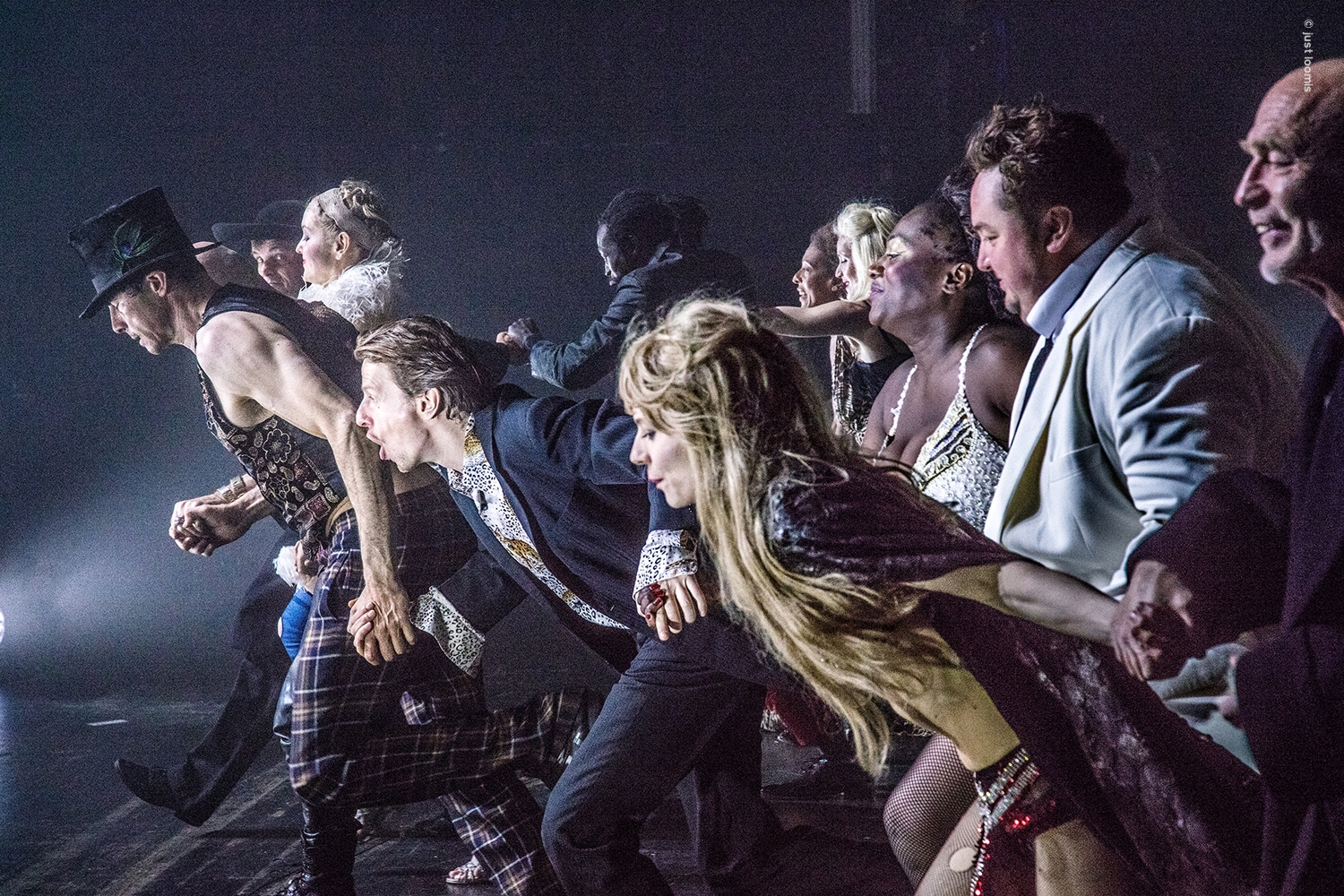


»Dostoyevsky’s novella The Landlady is terrible rubbish!« concluded the literary pundit and respected critic of Russian literature, Vissarion Belinsky, and added: »We were gullible enough to believe in the 'genius' of this author.« Stylistically, The Landlady is indeed quite untypical and unique in Dostoyevsky’s work. In the vein of E.T.A. Hoffmann’s writings, the novella tells a mysticizing story of longing, desire, and eroticism, reconciling German Romanticism with 20th-century Russian cinematography à la Tarkovsky. It’s the story of a love triangle: Vasily Mikhailovich Ordynov, a young scholar and reclusive maverick meets the enchantingly lovely Katerina, meets a young woman with a dark family secret from the poor quarters of Saint Petersburg. She is a »dishonoured slave« impelled by devout humility. She also appears to be the wife (or merely the servant?) of Ilya Murin, a once rich, and now bankrupt Tartar merchant. He is a sorcerer, an Old Believer, who at times is capable of using arguments convincingly, and at others times just lashes out at people like a lunatic. Ordynov moves into the unequal couple’s house and falls in love with Katerina to the point of obsession. Three people. Three different perspectives. And a great mystery enshrouding the true nature of their relationship.
While most of Dostoyevsky’s texts are subtle studies in the social mores and conditions of his time, abounding with crystal-clear psychological insights, the piece The Landlady is replete with characters and (apparent) facts that gradually dissolve beyond recognition, thereby unfolding an unconventional and quite specific dramatic quality. Dostoyevsky’s early work is the »polyphonic« (Mikhail Bakhtin) legacy of an experimental writer focusing on people who live on the margins of society. However, Dostoyevsky also authored political texts praising and advocating the Orthodox Church and absolute monarchy. Yet his literary writings are not merely descriptions of alterity, but explorations in the nature of man: human beings who »contain all the mysteries of the universe«, who are inconsistent, self-contradictory, humble, suffering and yet at the same time become violent and tyrannizing on their never-ending search for pure love and the road to paradise.
Following the stage adaptations of the novels Humiliated and Insulted, Demons, Crime and Punishment, The Idiot, and The Gambler, Frank Castorf now takes on the novellas and short stories by Dostoyevsky.
Duration: 2h 20min
With: Kathrin Angerer (Katerina), Marc Hosemann (Ilja Murin), Trystan Pütter (Wassilij Michailowitsch Ordynoff / Aljoscha), Hendrik Arnst (Jaroslaff Iljitsch), Volker Spengler (Hauswirt) and Harald Warmbrunn (Hausknecht)
Director: Frank Castorf
Stage Designer: Bert Neumann
Costumes: Bert Neumann
Light Design: Lothar Baumgarte
Camera: Andreas Deinert, Mathias Klütz
Live Editing: Jens Crull
Musical Arrangement: Klaus Dobbrick, William Minke
Dramaturgy: Sebastian Kaiser, Elena Sinanina
Formel
Das russische Volk lebt ganz in der Orthodoxie und in ihrer Idee. Außer dieser ist ihm nichts und hat es nichts – und braucht es auch nichts, denn die Orthodoxie ist alles; sie ist Kirche, und Kirche ist die Krönung des Gebäudes, und zwar auf ewig. Sie denken, ich werde das jetzt zu erklären anfangen? – keineswegs! Alles später und unermüdlich. Vorläufig aber stelle ich nur die Formel auf und füge noch eine andere hinzu: Wer die Orthodoxie nicht versteht, der wird auch nie und nimmer das russische Volk verstehen. Ja, nicht nur, das: der kann das russische Volk nicht einmal lieben, sondern wird höchstens ein imaginäres Volk lieben, wie er das russische Volk in Wirklichkeit zu sehen wünscht. Und andererseits wird auch das Volk einen solchen Menschen nicht als zu ihm gehörig anerkennen: Liebst Du nicht das, was ich liebe, glaubst du nicht daran, woran ich glaube und achtest du nicht mein Heiligtum, so bist du nicht mein Bruder. Oh, das Volk wird ihm deshalb nicht zu nahe treten, wird ihn weder überfallen, noch berauben, noch verprügeln, es wird ihm nicht einmal ein böses Wort sagen. Es ist zu großmütig dazu, es kann viel aushalten und ist in Glaubenssachen duldsam. Das Volk wird den, der es anderes sehen wollte, ruhig anhören (wenn er gescheit ist und zu reden versteht), wird ihm für Ratschläge sogar danken, für die Wissenschaft, die man ihm bringt, wird sogar manchen Rat befolgen, denn das russische Volk ist großzügig und versteht, die Dinge auseinanderzuhalten. Aber als seinesgleichen wird es ihn doch nicht ansehen, seine Hand wird es ihm nicht geben und sein Herz ebenso wenig. Unsere Intelligenz aber, im finnischen Sumpf, sieht an ihm vorbei und ärgert sich, wenn man ihr sagt, dass sie das Volk nicht kenne.
Fjodor Dostojewski, Notierte Gedanken aus den Jahren 1880 und 1881